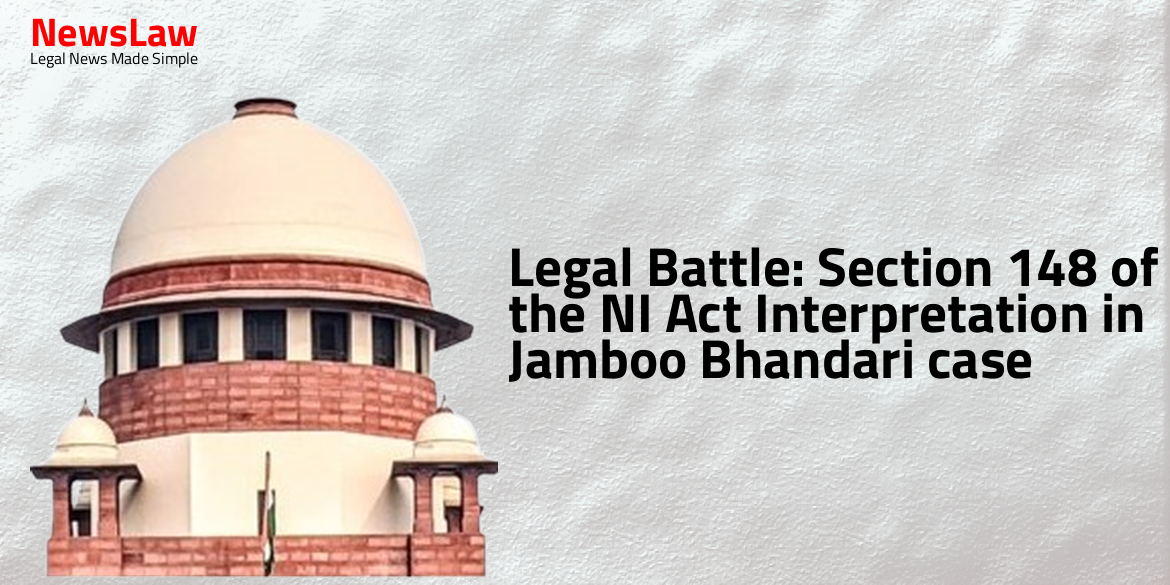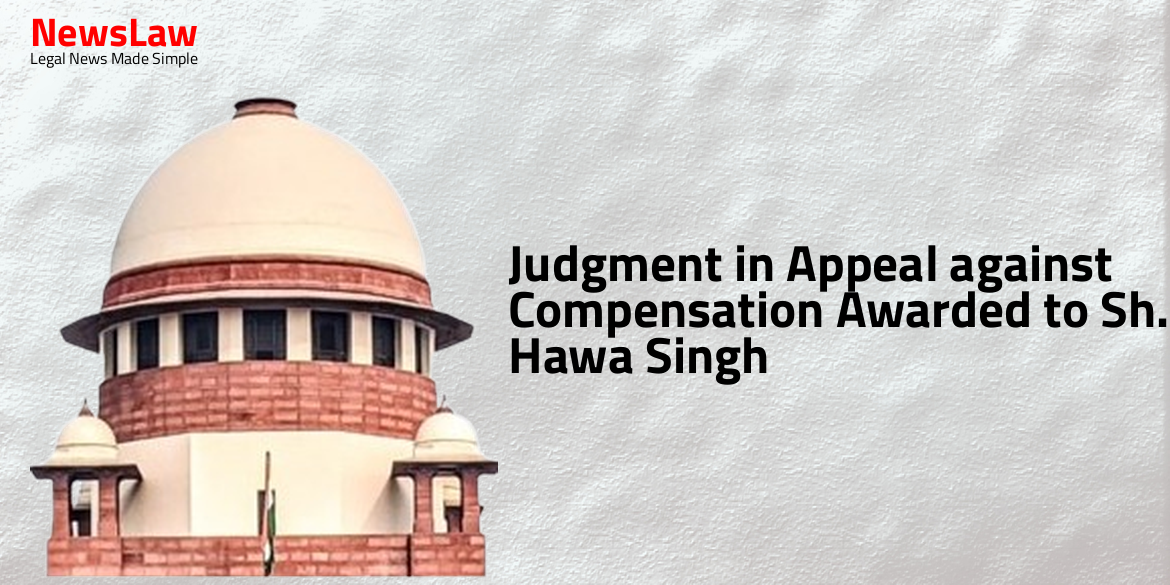In a significant legal development, the Delhi High Court addressed the interpretation of Section 148 of the NI Act in the case of Jamboo Bhandari. The Court emphasized the importance of this section and its application, highlighting its relevance in the ongoing legal battle.
Arguments
- The petitioner submits that a recovery of over Rs.6 lakhs has already been made against him, and further recovery is still ongoing.
- The Appellate Court wrongly insisted on a 20% deposit of the compensation amount under Section 148 of the NI Act for hearing the appeal, contrary to the Supreme Court’s ruling in Jamboo Bhandari case.
- The petitioner has agreed to deposit 20% of the amount without prejudice to his rights, as recorded in the court.
- The Appellate Court erred in not considering that the petitioner has already paid more than 20% of the compensation amount in the execution petition.
- Citing the Jamboo Bhandari case and Baiju v. State of Kerala, the petitioner argues that the pre-deposit condition under Section 148 of the NI Act is not obligatory and must be evaluated based on the circumstances.
- The recovered amount exceeds 20% of the compensation awarded by the MM while convicting the petitioner under Section 138 of the NI Act.
- The learned counsel for the respondent argues that no benefit of the recovery made in the civil suit can be given to the petitioner.
- The petitioner cannot be permitted to take advantage of the recovery made in the civil suit.
- The respondent has filed an application seeking withdrawal of the amount, which would prejudice the rights and contentions of the petitioner.
- The petitioner is a man of means and can easily pay the amount, but is not doing so, prompting coercive steps for recovery by attaching his salary.
Analysis
- Section 148 of the NI Act was considered by the Supreme Court in Jamboo Bhandari case.
- The Court’s interpretation and application of Section 148 was discussed.
- The Court emphasized the significance of Section 148 in the case.
- The Appellate Court needs to take into account the circumstances surrounding the application for suspension of sentence.
- The appellant’s salary account has already been attached, and a significant amount has been recovered.
- The recovered amount exceeds 20% of the compensation awarded by the Magistrate.
- The Appellate Court should assess if requiring further deposit of 20% of the compensation would infringe upon the appellant’s rights.
Decision
- The amount deposited as a condition for considering the petition shall remain before the Trial Court during the appeal process.
- The deposited amount will be released depending on the outcome of the appeal and as per the directions given during the appeal’s disposal.
- The Appellate Court is urged to expedite the appeal’s adjudication and aim to resolve it within a 16 period.
- The petitioner is instructed to deposit 20% of the ‘cheque amount’ with the Trial Court as per the Court’s clarification.
Case Title: ADESH TYAGI Vs. POOJA KAUR (2024:DHC:3838)
Case Number: CRL.M.C.-233/2024



